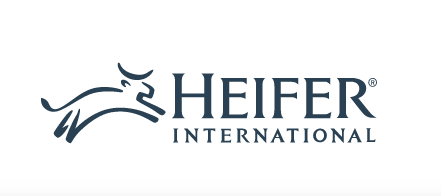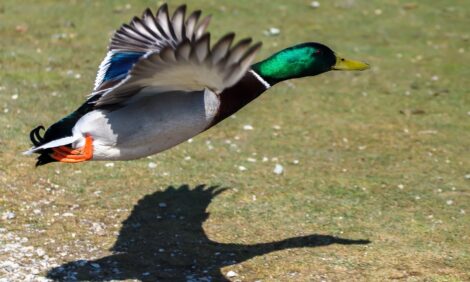



Healthy animals, healthy people: Heifer experts weigh in on what makes a thriving farm ecosystem
Livestock are intricately linked to the survival of millions of farmers around the world.Article taken from Heifer International; read more and or support their causes at Heifer.org
For smallholder farmers who depend on raising animals for quality nutrition and income, the health and safety of their livestock directly translates to economic resilience and food security. This symbiotic relationship between farmers and their livestock leads to a shared ecosystem in which humans and animals coexist and thrive together.
Heifer supports farmers in raising livestock only at their request, helping them choose animals that are suitable for their geography, environment and culture, and that can be properly cared for with the resources available. Then Heifer helps livestock producers secure the health of their animals by providing access to knowledge, supplies and services to mitigate risks and increase productivity in a thoughtful, sustainable way.
Known as extension services because they extend information to farmers, this work takes a proactive approach toward animal care that enables farmers to effectively reduce health challenges on their farms and prevent the spread of disease.
Heifer has a long history working alongside farmers to improve methods and techniques of promoting sanitary farm practices, prioritizing animal well-being and increasing production efficiency to build Sustainable Living Incomes in the communities we serve.
Christine Hernandez, livestock specialist for Heifer USA and Dr. Sushmita Parai, senior program manager – animal well-being for Heifer India share four simple farm and animal management techniques Heifer promotes to support smallholder farmers in building safe and profitable livestock farming systems.
Building Safe Shelter
Low-cost and adaptable animal shelters developed from local resources help farmers keep their animals safe from diseases and predators. Image by Phillip Davis/Heifer International.
In traditional farming setups, animals and producers often dwell in close proximity to each other. Lack of physical separation or adequate housing increases the risk of germs spreading, sick animals transmitting disease to healthy animals and attack by predators.
Heifer encourages farmers to build a “closed farm” where animals are kept in a fenced yard or a barn, with good ventilation and sufficient space per the requirements for different species, as overcrowding can increase stress and negatively affect animals’ health. We also teach farmers to house and feed sick animals separately, to contain the infection when there is an outbreak.
“We teach [them] principles of housing. But, we give [them] the flexibility to adapt the principles according to the space they have, according to the resources they have,” shared Parai.
Securing Health Services and Treatment
Geeta Rani Jena, a community vaccinator, deworms a local farmer’s chicken in Odisha, India. Image by Pranab K. Aich/Heifer International.
The biggest threat to livestock are microbes and parasites, Hernandez explained, which can spread from animals to humans and humans to animals. But regular vaccination and disease prevention practices can help prevent illness. “We have a vaccine protocol. So, for our herd, they get certain vaccines every year [and] they get boosted for it every year,” Hernandez added. “It’s also going to keep you as a person healthy if you are following those protocols."
Heifer also trains local community animal health workers who provide services such as vaccination, deworming and first-aid treatment at nominal prices to farmers, which makes animal treatment accessible in rural areas. “This [model] helps farmers access affordable services within the village, but also creates local employment opportunities for women,” Parai shared. “Public awareness and availability of services around disease prevention and treatment helps keep animals safe and healthy.”
Promoting Biosecurity Measures
Georgina Vazquez Perez stirs the litter in her chicken coop to even out moisture that prevents bad smells and the spread of diseases. Image by Olivier Asselin/Heifer International.
Keeping animals disease-free also requires more than vaccines and medicine. Germs flourish in moisture and dirt, so good biosecurity — a set of behavioral policies and preventative measures designed to protect animals, people and plants from transmitting infectious diseases — is needed at the farm level.
To prevent diseases, Heifer encourages farmers to maintain good biosecurity in and around their farms, including regular sanitization of animal sheds and modifying operations to reduce the risk of disease. "We ask farmers to keep the shelter neat, clean and dry,” Parai shared. “We ask them not to share their animal equipment, tools, feeder, water, etc. We ask them to keep separate shoes or slippers for going inside or coming out of the animal house. All these simple steps can help them build secure farms.”
“Biosecurity is very important to keep your farm productive and safe,” Hernandez added. “[At Heifer Ranch] we require people to either get a pair of clean boots to wear, or we would provide boot covers to them. Harmful germs can come through boots or even vehicle tires, or [on] dirty clothes [that] travel from one farm to another farm.”
Providing Nutritious Feed and Fodder
Feed formulations based on local availability of resources and agricultural products help producers avail low-cost yet healthy feed for their livestock. Image by Joe Tobiason/Heifer International.
A balanced diet keeps animals healthy and increases their immunity against diseases. “There are various components of nutrition for good well-being, good digestion, good production and good immunity so that the animal does not fall sick,” Parai shared.
Heifer promotes preparing and feeding animals green fodder and locally prepared feed containing essential minerals. Where water is scarce, fodder cultivation also helps mitigate the environmental impact of open grazing and reduces farmers’ dependence on availability of commercial feed.
“When we do the [feed] mapping, we try to map what is the agricultural produce the family has access to, or what are the low-cost ingredients available,” Parai shared, referring to Heifer’s approach to helping smallholder farmers best feed their animals with the resources they have. “With good nutrition, everything improves.”
You can support Heifer International by donating here.









